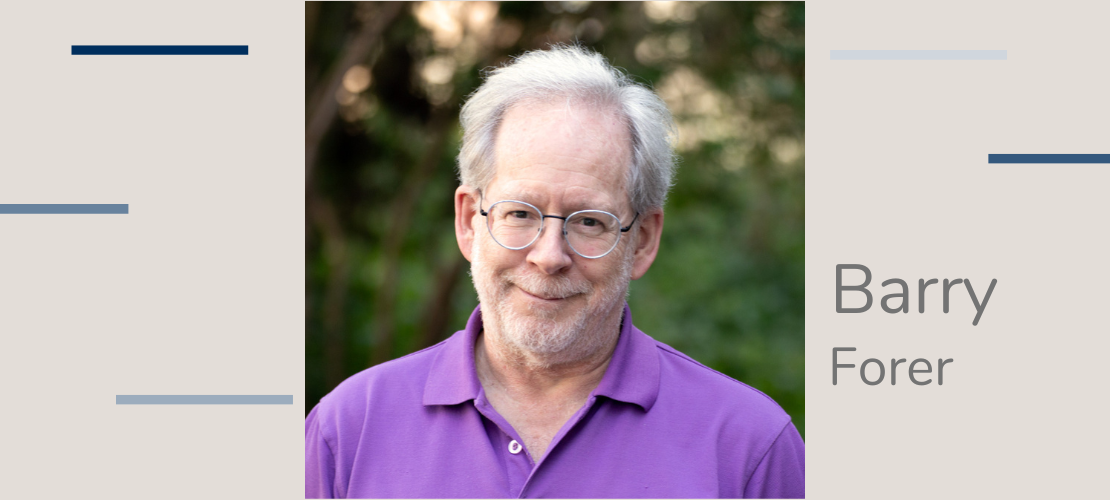Dr. Barry Forer is a scientist dedicated to making the world a healthier, more sustainable place.
Forer is one of the leading researchers at the Human Early Learning Partnership (HELP) — he holds the title of Research Methodologist, specializing in early childhood development and child care. With a Ph.D. from the Measurement, Evaluation and Research Methodology program at UBC’s Faculty of Education and 35 years of involvement in child care research, his work focuses on the promotion of equity from the start of the human life course.
“Being located at a university has been central to my research inspiration,” says Forer. “When I was an undergraduate in Ecology at the University of Toronto in the 1970s, I would look at bulletin boards for opportunities to attend talks on any number of subjects, and more often than not, I would come away with new connections to ponder.”
From the mid-1980s to 2002, Forer worked as a consultant on a wide variety of Early Learning and Child Care (ELCC)-related projects, often as the main quantitative/measurement person on the project team. “It was a nice niche role, but also a bit solitary,” says Forer. Now, as a research associate at HELP, he works with “a number of colleagues just like me, and others with complementary interests and skills — all working towards the lofty goal of a better world, or at least a better British Columbia. HELP is truly a place that continues to epitomize the idea of shared space, long after Clyde Hertzman (our founder)’s physical presence there.”
Forer’s work at HELP includes the role of Scientific Lead for both the Early Development Instrument (EDI) and the Childhood Experiences Questionnaire (CHEQ). As ELCC opportunities expand across the province and the country, he is excited by the “opportunity in the future for linkages between EDI and child care data gathered by the province, especially if provinces commit to gathering more individual-level child care data, from both children and families, as well as those working in the field.”
With November 30 marking the Day of Action for ELCC, we asked Forer about what equitable access to ELCC means to him. “It means that all parents have access to options that meet their family’s needs, while being both affordable and high quality. It’s a human right, as detailed in the UN Convention on the Rights of the Child — and it’s the most efficient way to promote equity throughout the life course.”
While Forer also acknowledges the progress made on more affordable child care for families with young children, such as child care fee reductions (heading to $10 a day on average) and the Canada Child Benefit, he notes that “tackling ELCC workforce issues — training, recruitment, retention, compensation — is the greatest current challenge, one that will require a lot of time and effort to meet effectively.”
As for Forer’s hopes for equitable access to ELCC in Canada in the future? “I hope we’ll look a lot more like Norway — a place where young children’s autonomy is prized, and their well-being is a top societal priority.”
Learn more about how you can support the Day of Action for Early Learning and Child Care via Child Care Now.
